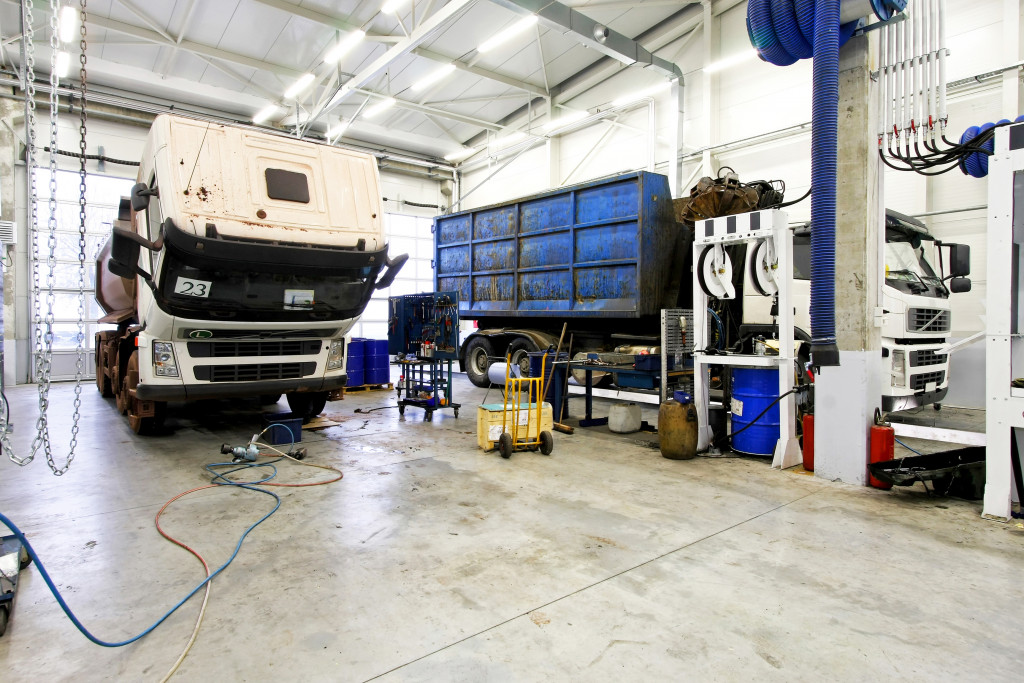- Regular maintenance, proactive repairs, and vehicle hygiene are essential for optimal fleet operation and longevity.
- Technological tools like GPS and telematics provide real-time tracking, enhance security, and aid in proactive maintenance.
- Professional driver training develops safe driving skills, enables fuel efficiency, and reduces vehicle wear and tear.
- Comprehensive fleet management involves maintenance, technology utilization, and driver training for efficient, safe operation.
Fleet vehicles are a critical asset for many companies, acting as an operational backbone and often proving essential to their successful functioning. They facilitate logistics, help in delivering services timely and efficiently, and are crucial in ensuring customer satisfaction. According to the American Transportation Research Institute, the trucking industry alone transported nearly 11.84 billion tons of freight in the US, which accounts for 72.5% of the nation’s total freight tonnage, reflecting the magnitude of reliance on fleet vehicles.
Furthermore, a study by MarketsandMarkets indicates that the fleet management market globally is expected to grow from USD 19.9 billion in 2020 to USD 34.0 billion by 2025 at a Compound Annual Growth Rate (CAGR) of 11.3%. These statistics underline fleet vehicles’ vital role and growing importance in the corporate world.
However, it can be challenging to ensure their protection, especially when they are out on the roads. When managing their fleets, companies must consider several aspects to protect them. Here are a few tips to help you:
Fleet Maintenance and Repairs

Regular maintenance and timely repairs are vital to ensure the longevity and safety of your fleet vehicles. Proper care can help to identify potential issues early, preventing costly and time-consuming repairs down the line. Moreover, the efficiency of your fleet directly affects your company’s operational success, customer satisfaction, and overall profitability. Here are critical steps in the fleet maintenance and repair process:
Regular Service Checks
Regularly scheduled service checks are paramount for maintaining the optimal performance of your fleet. This includes regular oil changes, tire checks, brake inspections, and other essential services that keep your vehicles running smoothly.
Proactive Mechanical Repairs
Any identified mechanical issues should be attended to during regular service checks promptly. Proactive repairs can prevent minor issues from escalating into major problems, thus saving substantial repair costs and minimizing vehicle downtime.
Maintaining Vehicle Hygiene
Maintaining your fleet’s cleanliness not only enhances your company’s professional image but also contributes to the overall health of your vehicles. Regular cleaning of the interior and exterior can prevent rust and decay, ensuring the longevity of your fleet.
Implementing a Fleet Management System
A comprehensive fleet management system can streamline and automate your fleet maintenance processes. These digital platforms can provide real-time updates on vehicle status, schedule regular maintenance checks, and alert you to mechanical issues, ensuring no maintenance task is overlooked.
Technology Utilization

In the era of digitization, utilizing technology for fleet management is not just beneficial – it’s essential. Technological advancements, such as GPS tracking for fleet vehicles, have revolutionized fleet management, making it more efficient, reliable, and cost-effective. GPS tracking systems offer real-time location data, enabling companies to actively monitor their fleet’s movements. This capability is invaluable in enhancing route efficiency, reducing fuel consumption, and improving customer service by providing accurate arrival and delivery times.
Moreover, technology aids in safeguarding the fleet against theft and unauthorized use. With GPS tracking for fleet vehicles, you can set up geofences around specified areas – an invisible boundary that, when crossed, triggers an alert to the fleet manager. Such alerts ensure higher security levels and allow for swift action in case of suspicious activity.
Another example of beneficial technology is telematics, which extends beyond location tracking to monitor various vehicle parameters like fuel usage, engine temperature, and driver behavior. This data aids in proactive maintenance, reduces the risk of unexpected breakdowns, and promotes safer driving practices.
Integrating technology into your fleet management strategy is an investment that can significantly reduce operational costs, enhance security, and improve overall productivity. As technology continues to evolve, it will undoubtedly continue to shape the future of fleet management.
Driver Safety and Professional Training
Driver safety plays a critical role in fleet management. The issue is significant for companies operating long-haul fleets, as drivers often spend extended periods driving in hazardous conditions on the road. To ensure driver safety, it’s essential to provide the necessary training and equip them with the right tools to enable safe and responsible driving.
Professional driver training is necessary to help drivers develop the skills and knowledge required for safely operating fleet vehicles. It also enables increased fuel efficiency, reduced vehicle wear and tear, and fewer accidents. Additionally, equipping your cars with devices like dash cams helps monitor driver behavior and provides personalized training to increase their skill level.
Final Thoughts
In conclusion, fleet management involves many factors that must be considered to ensure your fleet’s safety and efficient operation. A comprehensive strategy should include regular maintenance, technological utilization, and driver training for optimum results. By implementing these tips, you can protect your fleet vehicles and enhance their performance in the long run.



